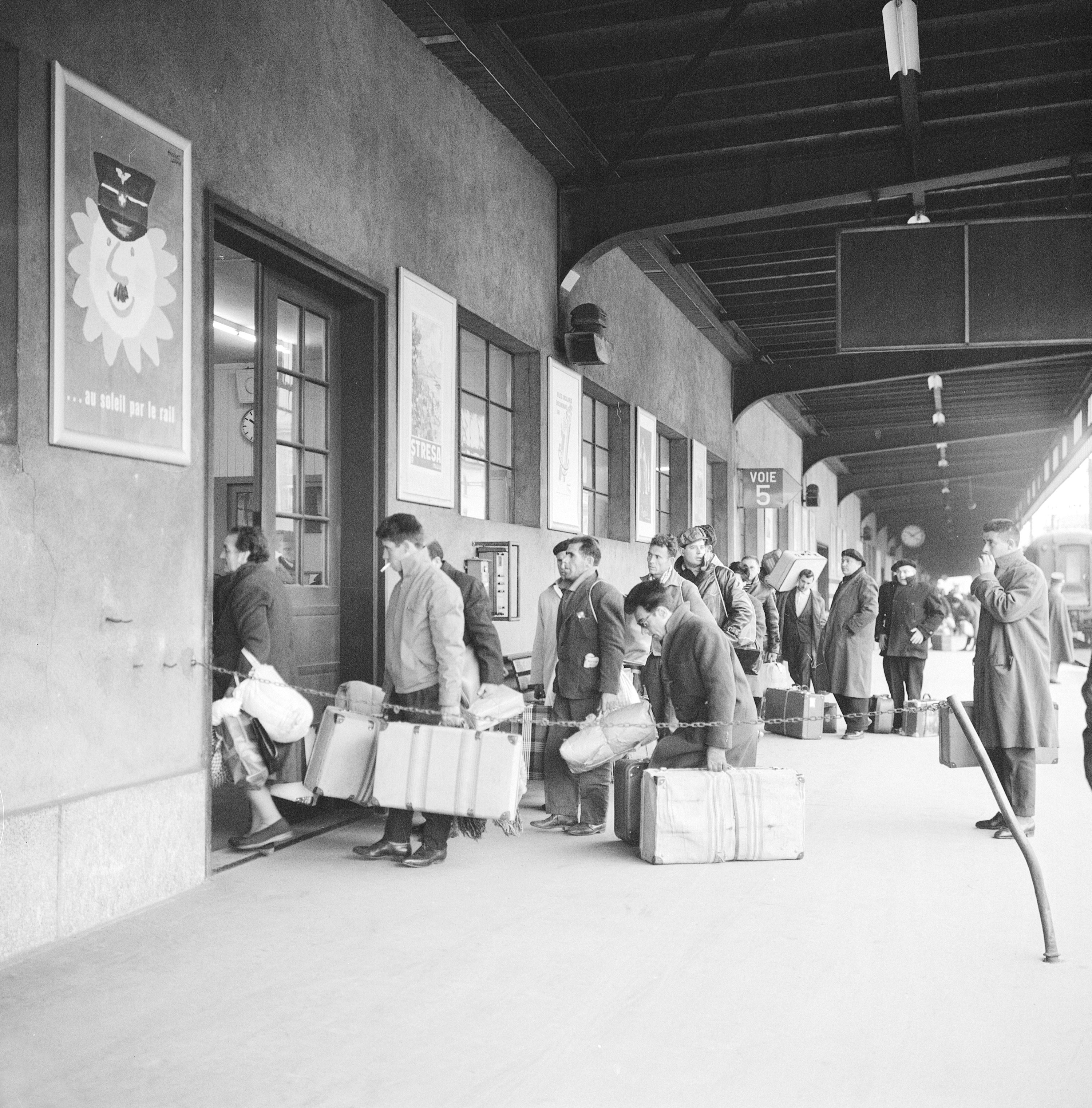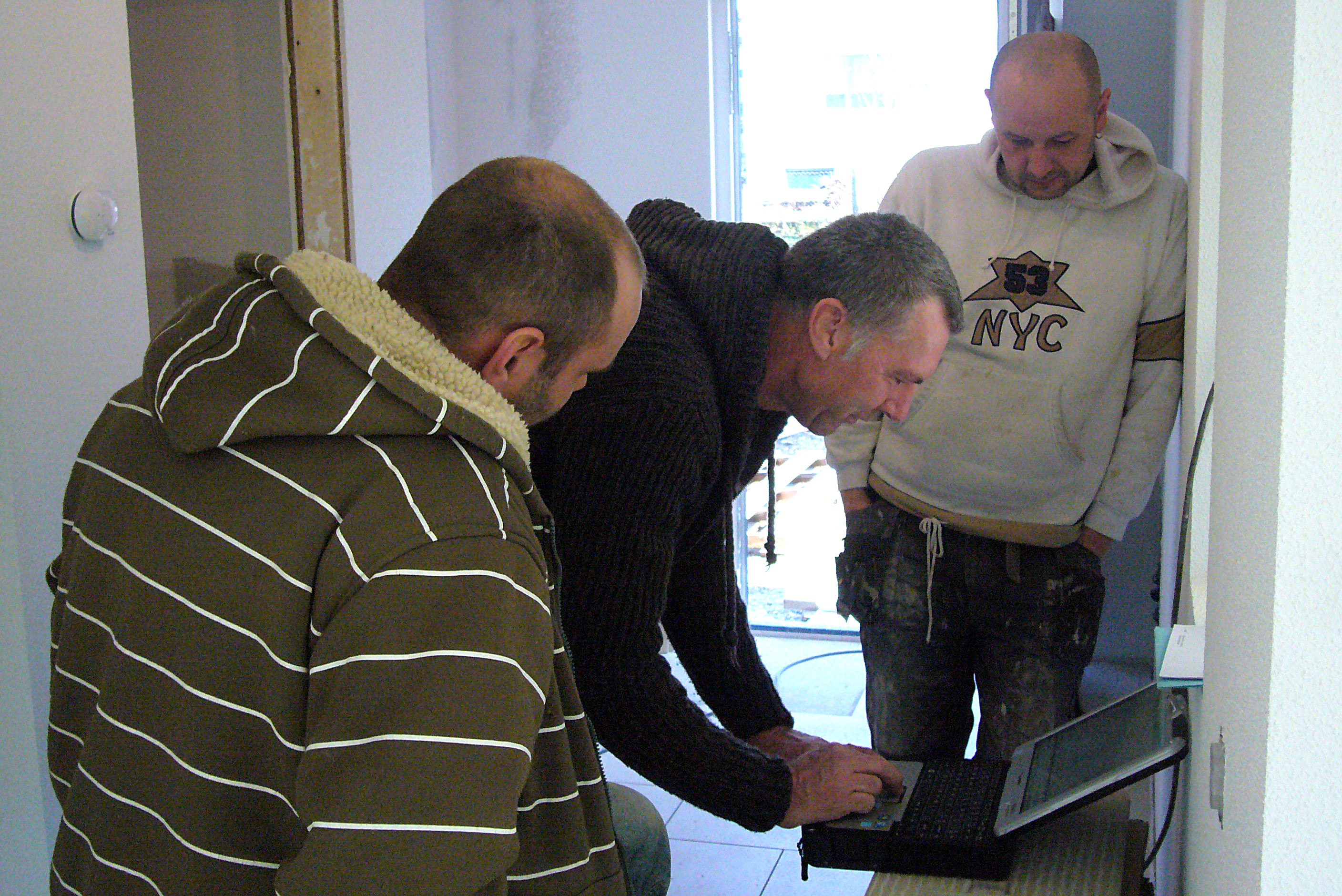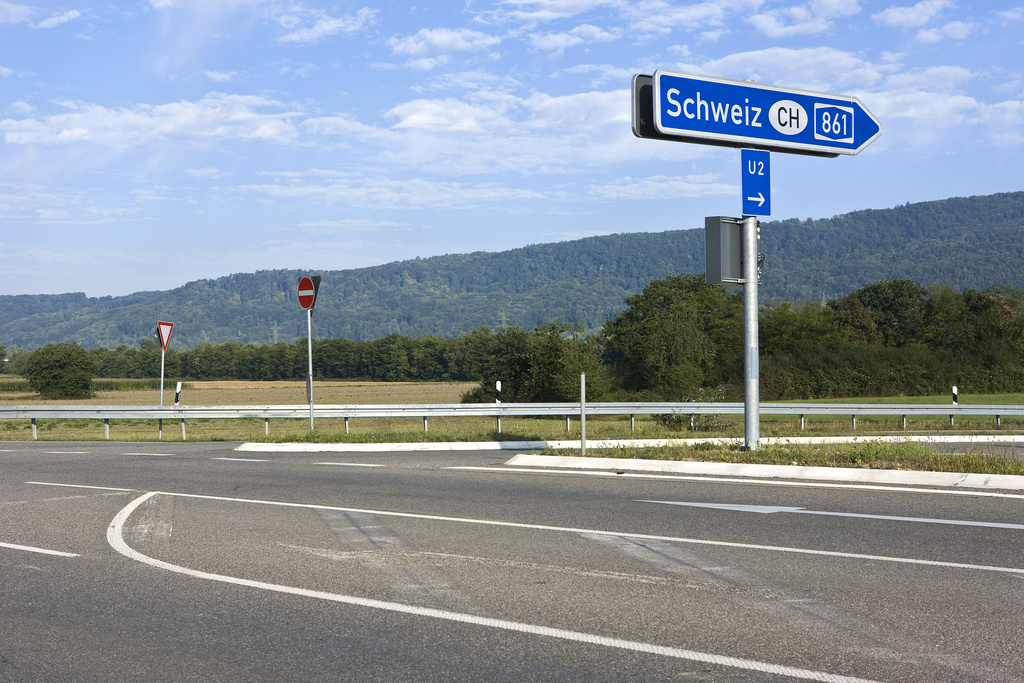Swiss report sees no major drawbacks for labour

Switzerland has benefited from a treaty with the European Union on a common labour market, while the impact on unemployment or pressure on salary levels remained limited, according to the economics ministry.
A report to mark the tenth anniversary of the introduction of so called free movement of people accord, granting access to the labour markets in Switzerland and the EU was published on Friday.
Marie-Gabrielle Ineichen-Fleisch of the State Secretariat for Economic Affairs (Seco) told a news conference that there are no signs that Swiss residents have massively been subject to job losses because of increasing competition by immigrants from 30 European countries belonging to the EU and European Free Trade Association (Efta).
“Immigrants from the EU have above average professional skills and Switzerland’s economy relies on access to hihgly qualified international labour,” she said.
According to the Seco report there was no general pressure on low pay salaries, although initial wages in the construction industry did drop slightly in the past decade.
However, foreigners from outside Europe did suffer a setback on the Swiss labour market as a result of the labour accord with the EU with the official employment quota slipping by nearly one per cent.
The accord on the free movement of people, first introduced in 2002 and later extended to the enlarged EU, led to a considerable influx of immigrants from Europe to Switzerland.
While there were just over 26,000 immigrants annually on average in the 1990ies, the increase peaked in 2008 with a total of more than 90,000 people before it dropped again slightly to 78,500 people last year.
Political claims
The Swiss Employer’s Association has welcomed the findings of the report. They debunk allegations of critics on both sides of the political spectrum according to the association’s director, Thomas Daum.
Daniel Lampart, chief economist of the Trade Union Federation for its part insists on additional measures to combat abuses on the labour market, notably by subcontractors.
The perceived pressure on salaries as well as housing and transport has become a sensitive political issue.
Pushing its political agenda, the rightwing Swiss People’s Party has called for the labour accord with the EU to be re-negotiated.
The Party on Friday accused the authorities of whitewashing real problems, while the centre-left Social Democratic Party agreed with the Seco report. However, they called for additional political measures to prevent salary dumping.
Legal amendments to the labour accord are tabled for the three-week session of parliament due to begin next week.
The government last month decided to limit immigration for eight countries mainly from eastern Europe, including Poland, Hungary, the Czech Republic, Slovakia, Slovenia, as well as the three Baltic Republics Lithuania, Latvia and Estonia.
The labour accord with 15 EU as well as three Efta member states took effect in 2002 following Swiss voters’ approval in a nationwide vote.
It is considered a key bilateral accord for non- EU member Switzerland with the 27-nation bloc.
The treaty was extended to ten new EU member states two years later, gradually introducing free access to each other’s labour markets.
In 2009 the accord was extended to an additional two new EU member countries in eastern Europe following another nationwide ballot.
Under the accord, Switzerland and all EU and Efta countries benefit from unlimited access to each other’s labour markets by 2016.
However, the Swiss government decided to re-introduce labour quotas for eight eastern European countries for at least 12 months, causing international protests and criticism by the European parliament.

In compliance with the JTI standards
More: SWI swissinfo.ch certified by the Journalism Trust Initiative















You can find an overview of ongoing debates with our journalists here . Please join us!
If you want to start a conversation about a topic raised in this article or want to report factual errors, email us at english@swissinfo.ch.